第238章 LETTER CLV(2)
I do not mean that you should be a French lawyer;but I would not have you unacquainted with the general principles of their law,in matters that occur every day:Such is the nature of their descents,that is,the inheritance of lands:Do they all go to the eldest son,or are they equally divided among the children of the deceased?In England,all lands unsettled descend to the eldest son,as heir-at-law,unless otherwise disposed of by the father's will,except in the county of Kent,where a particular custom prevails,called Gavelkind;by which,if the father dies intestate,all his children divide his lands equally among them.In Germany,as you know,all lands that,are not fiefs are equally divided among all the children,which ruins those families;but all male fiefs of the empire descend unalienably to the next male heir,which preserves those families.In France,I believe,descents vary in different provinces.
The nature of marriage contracts deserves inquiry.In England,the general practice is,the husband takes all the wife's fortune;and in consideration of it settles upon her a proper pin-money,as it is called;that is,an,annuity during his life,and a jointure after his death.In France it is not so,particularly at Paris;where 'la communaute des biens'is established.Any married woman at Paris (IF YOU ARE ACQUAINTEDWITH ONE can inform you of all these particulars.
These and other things of the same nature,are the useful and rational objects of the curiosity of a man of sense and business.Could they only be attained by laborious researches in folio-books,and wormeaten manuscripts,I should not wonder at a young fellow's being ignorant of them;but as they are the frequent topics of conversation,and to be known by a very little degree of curiosity,inquiry and attention,it is unpardonable not to know them.
Thus I have given you some hints only for your inquiries;'l'Etat de la France,l'Almanach Royal',and twenty other such superficial books,will furnish you with a thousand more.'Approfondissez.'
How often,and how justly,have I since regretted negligences of this kind in my youth!And how often have I since been at great trouble to learn many things which I could then have learned without any!Save yourself now,then,I beg of you,that regret and trouble hereafter.Ask questions,and many questions;and leave nothing till you are thoroughly informed of it.Such pertinent questions are far from being illbred or troublesome to those of whom you ask them;on the contrary,they are a tacit compliment to their knowledge;and people have a better opinion of a young man,when they see him desirous to be informed.
I have by last post received your two letters of the 1st and 5th of January,N.S.I am very glad that you have been at all the shows at Versailles:frequent the courts.I can conceive the murmurs of the French at the poorness of the fireworks,by which they thought their king of their country degraded;and,in truth,were things always as they should be,when kings give shows they ought to be magnificent.
I thank you for the 'These de la Sorbonne',which you intend to send me,and which I am impatient to receive.But pray read it carefully yourself first;and inform yourself what the Sorbonne is by whom founded,and for what puraoses.
Since you have time,you have done very well to take an Italian and a German master;but pray take care to leave yourelf time enough for company;for it is in company only that you can learn what will be much more useful to you than either Italian or German;I mean 'la politesse,les manieres et les graces,without which,as I told you long ago,and Itold you true,'ogni fatica a vana'.Adieu.
Pray make my compliments to Lady Brown.